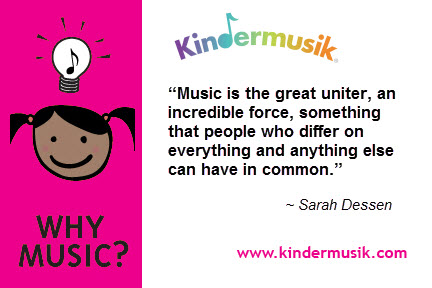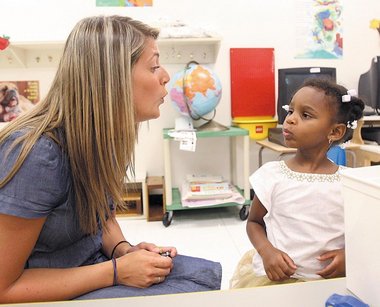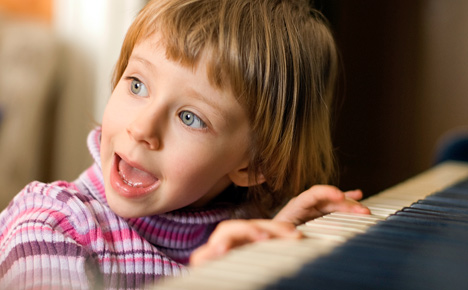 American writer Sarah Dessen is not a Kindermusik teacher nor does she specialize in early childhood special education. However, she seems to understand how music can reach individuals of all
American writer Sarah Dessen is not a Kindermusik teacher nor does she specialize in early childhood special education. However, she seems to understand how music can reach individuals of all
abilities. She wrote: “Music is the great uniter, an incredible force, something that people who differ on everything and anything else can have in common.”
In Kindermusik, we say it this way: “Everyone speaks music.” In the classroom, Kindermusik educators celebrate the individuality and contributions of each child. It’s no wonder music therapists love recommending Kindermusik and teaching Kindermusik. With our similar child-centered philosophies, music therapists are discovering Kindermusik offers opportunities for both their practice and their clients.
4 reasons why music therapists love using Kindermusik as part of a special education curriculum
- The Kindermusik curriculum naturally integrates typically developing children and children with special needs into one welcoming and loving environment.
- Kindermusik classes support the work done in individual music therapy sessions. Music therapists and families appreciate how Kindermusik takes many of the concepts children with special needs work on in occupational therapy, physical therapy, and speech and puts it into a group learning environment.
- Music therapists understand firsthand the benefits of music on children, including cognitive stimulation, self-expression, self-awareness, and increased motor movements.
- Music therapists can use their music therapy skills to reach more children and to expand their income potential.
Teaching children as a Kindermusik educator
“Being able to integrate typically developing children and special needs kids was just a dream come true,” explains Julie Wade, music therapist and Kindermusik educator. “The Kindermusik curriculum enables you to do just that in a positive therapeutic environment.”
Listen to what else Julie loves about being both a music therapist and Kindermusik educator. Plus, hear from her students, too!
Learn more about becoming a Kindermusik educator!





